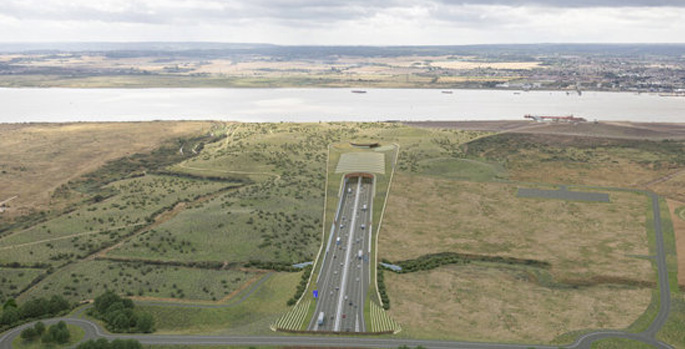The Lower Thames Crossing is set to be the first major project to make use of a new scheme designed to cut environmental red tape.
Under a new scheme introduced by the Department for Environment, Food and Rural Affairs (DEFRA), Natural England will now serve as the only environmental body in charge of all safeguarding work, with advice provided by the Environment Agency and other similar watchdogs.
Ministers hope that having all oversight handled by one governing body will cut the time needed to secure planning permissions and approvals for large-scale developments.
The Lead Environmental Regulator pilot is intended to test a new operating model for how environmental regulators support major development projects. Some of the new ways of working will include:
- Better co-ordination – through clear named contacts for developers, who will organise all input, push work ahead and resolve issues.
- Ensuring coherent advice is given across regulators to give developers a single view.
- Streamlining processes by sharing data, information and expert advice across all regulators.
- Resolving issues to escalate quickly where there is disagreement or divergence, by identifying causes, resolving them and reaching consensus before involving developers or other stakeholders. Proposed innovative solutions will be resolved at the working level or escalated quickly, including to the Infrastructure Board, with ministerial powers to be used to unblock issues if necessary.
A new DEFRA Group Infrastructure Board will also be introduced, with one of its main goals being to cut the time needed to meet planning permission requirements specifically related to environmental plans. According to DEFRA, it is also intended to help ‘minimise costs’ associated with delays.
The department expects the new infrastructure board to speed up ‘at least 50 major infrastructure projects’, including Hinkley Point C, East West Rail and the Heathrow expansion.
Environment secretary Steve Reed said: ‘People can’t find affordable homes to live in because Britain’s broken planning system has blocked building work, and that’s pushed up prices.
‘These changes will get spades in the ground quicker so developers can build the homes families need.'
Marian Spain, chief executive of Natural England, added: 'Sustainable development and nature recovery must go hand in hand, and urgent action is needed to restore our depleted nature and build desperately needed homes and infrastructure.
‘This model brings developers and all the regulators together to agree how to avoid environmental harm and plan opportunities for nature recovery, so streamlining the approvals process.
Matt Palmer, executive director for the Lower Thames Crossing, said: ‘As we gear up to start construction, this new approach will help us to move at pace, while ensuring we protect the natural environment and meet our environmental commitments.’






